Advanced Micro Devices (AMD) CEO Lisa Su surprised in more ways than one with the release of the company’s Q1 earnings on April 25, 2018. Not only was it a feather in her cap to learn that AMD has surpassed Q1 estimates, Su also revealed that only a small percentage of income was derived from the broad cryptocur
Get Started for FREE
Sign up with Facebook Sign up with X
I don't have a Facebook or a X account

| Tags |
|---|
 Your new post is loading... Your new post is loading...
 Your new post is loading... Your new post is loading...
Companies and investors alike already know that Big Data is big money. And if that’s the case, it stands to reason that the more data an institution can amass, the better. But that’s not necessarily true. “It’s not the amount of data that’s important. It’s what organizations do with the data that matters. Via ArrowECS, massimo facchinetti
Richard Platt's insight:
Companies and investors alike already know that Big Data is big money. And if that’s the case, it stands to reason that the more data an institution can amass, the better. But that’s not necessarily true. “It’s not the amount of data that’s important. It’s what organizations do with the data that matters.
Blockchain. Bitcoin. Cryptocurrency. These are more than just buzzwords that have been floating around for the past few years. Cryptocurrency has been soaring in value, and a live tracker of its value shows considerable gains in the past few months. So what exactly is blockchain? How does it relate to Bitcoin or cryptocurrency? Should you, … Via Enzo Calamo
Richard Platt's insight:
Off the Internet and Into the Mainstream - Cryptocurrency, particularly Bitcoin, has moved off the Internet and is being popularized. J.P. Morgan Chase is reportedly considering whether to offer Bitcoin as an investment and to allow its clients to trade in Bitcoin futures, as the Community Futures Trading Commission announced that Bitcoin futures are being launched. This speaks to the legitimacy of the cryptocurrency, as well as its popularity, as some of the largest financial markets and institutions in the world are actively pursuing ways to incorporate cryptocurrency into their models and trading. The future of cryptocurrency is open in many ways. There are expected to be 21 million Bitcoins once all blocks have been fully mined, though that number could be different, depending on mining rates. Nearly three out of every four Bitcoins that will ever exist have been mined, making it an increasingly rare, but not unattainable commodity. As the price for Bitcoins skyrockets, more and more companies are accepting it as they would any other form of currency. Businesses that accept Bitcoin are adapting to the new technology and marketing themselves as Bitcoin-friendly companies. There are a number of different ways you can begin to take Bitcoin as legal tender, and small businesses are not left out of the loop.
Bitcoin slumped, dragging down smaller rivals such as ether and litecoin, as concerns that regulators will tighten their grip on the market weigh on the the world’s largest cryptocurrency.
Richard Platt's insight:
Bitcoin slumped, dragging down smaller rivals such as ether and litecoin, as concerns that regulators will tighten their grip on the market weigh on the the world’s largest cryptocurrency. Regulators in China and South Korea are increasing oversight on cryptocurrency trading and mining, while the U.S. Securities and Exchange Commission late last year started cracking down on some digital token sales, known as ICOs. Coinmarketcap.com’s decision to exclude Korean pricing data for coins helped create the appearance of a large drop in prices, which some traders attributed as playing a part in the selloff. "News on the regulatory front is dragging down cryptos," said Gabor Gurbacs, director of digital-asset strategy at VanEck Associates Corp. "South Korea and China tightening is weighing on bitcoin and in the ICO market, things started slowing down, with the SEC cracking down on illegal offerings." Bitcoin slumped as much as 17 percent to $14,820, the most in more than two weeks. The rout in bitcoin is part of a broader selloff in the cryptocurrency realm, with all of the top 10 by market cap falling, and most tumbling by at least 10 percent, according to Coinmarketcap.com. Cardano fell 16 percent, while litecoin slumped as much as 16 percent to as low as $230. Bitcoin is little changed this year after surging about 1,400 percent in 2017.
MIT Sloan assistant professor Christian Catalini on why blockchain and cryptocurrencies could upend every industry. Via Kenneth Carnesi,JD
Richard Platt's insight:
What is a blockchain? “At a high level, blockchain technology allows a network of computers to agree at regular intervals on the true state of a distributed ledger,” says MIT Sloan Assistant Professor Christian Catalini, an expert in blockchain technologies and cryptocurrency. “Such ledgers can contain different types of shared data, such as transaction records, attributes of transactions, credentials, or other pieces of information. The ledger is often secured through a clever mix of cryptography and game theory, and does not require trusted nodes like traditional networks. This is what allows bitcoin to transfer value across the globe without resorting to traditional intermediaries such as banks.” On a blockchain, transactions are recorded chronologically, forming an immutable chain, and can be more or less private or anonymous depending on how the technology is implemented. The ledger is distributed across many participants in the network — it doesn’t exist in one place. Instead, copies exist and are simultaneously updated with every fully participating node in the ecosystem. A block could represent transactions and data of many types — currency, digital rights, intellectual property, identity, or property titles, to name a few. “The technology is particularly useful when you combine a distributed ledger together with a cryptotoken,” Catalini says. “Suddenly you can bootstrap an entire network that can achieve internet-level consensus about the state and authenticity of a block’s contents in a decentralized way. Every node that participates in the network can verify the true state of the ledger and transact on it at a very low cost. This is one step away from a distributed marketplace, and will enable new types of digital platforms.”
Tech giant Apple has recently submitted a new patent application that uses Blockchain within a prospective system for verifying timestamps.
Richard Platt's insight:
Apple has recently submitted a new patent application that uses Blockchain within a prospective system for creating and verifying timestamps. Based on the public application to US Patent and Trademark Office on Thursday where Blockchain technology was used to certify timestamps as a program combined with Public Key Infrastructure (PKI) tools. Apple's application describes three possible methods for establishing timestamps, with one of these scenarios centering on a Blockchain platform. There is a use case in question where data stored involves tying a piece of information to a particular transaction on a Blockchain, establishing the state of that data at a particular point in time. The program would generate a block containing a timestamp, with every subsequent block being added as miners verify each transaction conducted on the chain. This system is part of what Apple is calling a "multi-check architecture," meaning that another system would confirm the timestamp after the block is generated but before it is added to the chain. Like other established institutions, Apple believes in the power of Blockchain technology and its benefits. Apple has seen the benefits of how the transactions are verified and approved by consensus among participants in the network, making fraud more difficult. The technology operates on a distributed rather than centralized platform, with each participant having access to exactly the same ledger records, allowing participants to enter or leave at will and providing resilience against attacks.
Bev Robb attempts to simplify the emerging technology of blockchain for all of us under the brass tacks of Blockchain 101. Via Kenneth Carnesi,JD
Richard Platt's insight:
Read to understand
A total of 13 Blockchain startup companies were included in the latest CBS Insights Fintech 250 startup list of emerging fintech companies changing the industry.
Richard Platt's insight:
A total of 13 Blockchain startup companies were included in the latest CBS Insights Fintech 250 startup list as of early October 2017. The report compiles “emerging fintech startups that are changing the face of the fintech industry.” It also cites the booming growth of the financial technology (fintech) sector. The major industries where the bulk of the companies on the list come from include the processing and payment infrastructure, capital markets and trading and wealth management. Also included in the top six are mobile banking, business lending and merchant services. The Blockchain industry, meanwhile, is among the smaller industries in the fintech sector.
SANTA CLARA, Calif., Sept. 19, 2017 /PRNewswire/ -- Today, Bosch, BNY Mellon, Cisco, Gemalto, U.S. Bank along with Bitse, Chronicled, ConsenSys, Ledger
Richard Platt's insight:
Bosch, BNY Mellon, Cisco, Gemalto, U.S. Bank along with Bitse, Chronicled, ConsenSys, Ledger, Skuchain, Slock.it, HCM International of Foxconn Group, IOTA, Oaken Innovations, Qtum, Chain of Things, Big Chain DB announced the official launch of the Trusted IoT Alliance, a group of companies united to catalyze the development of a blockchain-enabled, trusted Internet of Things (IoT). The mission of the Trusted IoT Alliance is to bring companies together to develop and set the standard for an open source blockchain protocol to support IoT technology in major industries worldwide.
Robert Shiller, the Nobel-winning author who predicted the two biggest speculative markets in recent history, is repeating that bitcoin is in a bubble.The cryptocurrency is "the best example right now," Shiller told Quartz's John Detrixhe in an interview published Tuesday. In January 2014 at the World Economic Forum in Davos, Switzerland, he called the cryptocurrency "an amazing example of a bubble," adding that there was "no question about it." Bitcoin has exploded in price and popularity since then. Bitcoin was at $4,337 on Tuesday Via TechinBiz
Richard Platt's insight:
Robert Shiller, the Nobel-winning author who predicted the two biggest speculative markets in recent history, is repeating that bitcoin is in a bubble.The cryptocurrency is "the best example right now," Shiller told Quartz's John Detrixhe in an interview published Tuesday. In January 2014 at the World Economic Forum in Davos, Switzerland, he called the cryptocurrency "an amazing example of a bubble," adding that there was "no question about it." Bitcoin has exploded in price and popularity since then. Bitcoin was at $4,337 on Tuesday, or about 442% over its price in January 2014 of about $800 a coin.
The CEO of Deutsche Bank said a "big number of staff will eventually be replaced by robots. Via massimo facchinetti
Richard Platt's insight:
CEO John Cryan is reported to have told an audience at a conference in Frankfurt that a “big number” of the bank’s staff will lose their jobs as a result of new technology taking ove. The bank has around 100,000 employees. He accused accountants as being like abacuses, saying the bank “won’t need as many people”. “In our banks, we have people behaving like robots doing mechanical things. Tomorrow, we’re going to have robots behaving like people,” he added. Cryan also said some roles will become more interesting and that the cuts to permanent staff might be less severe, with thousands of contractors being let go. Technology such as artificial intelligence (AI) and automation software is taking over many repetitive tasks at businesses, with the financial services sector leading the charge.
A price war has raged in U.S. supermarket aisles for well over a year, bloodying retailers big and small. On Monday, Amazon.com plans to toss a smart bomb into
Richard Platt's insight:
While this won't exactly bring responsibly farmed salmon to the masses -- after all, Whole Foods stores will remain in high-rent neighborhoods -- the price reductions could draw in curious new shoppers and present brick-and-mortar retailers with a dilemma. Do they follow suit and see their margins squeezed, or hold fast and risk sacrificing sales in one of the few areas of the food industry that's actually growing? "Changing prices across the board is not a simple process for most retailers," said Greg Portell, a partner at consulting firm A.T. Kearney. "It takes time and labor. What Amazon has done is bring a level of dynamic pricing that will have to be matched by anybody selling food. It will disrupt the way the sector works." Kroger shares rose 2.8 percent on Friday after falling 8.1 percent Thursday, while Costco alternated between losses and gains following Thursday's 5 percent decline. Friday, shares of Royal Ahold Delhaize NV, the Dutch company that operates the Giant Food and Food Lion chains, dropped as much as 7.6 percent in Amsterdam. Even European companies with no ties to the U.S., such as Great Britain's Tesco Plc and France's Carrefour SA, saw their shares decline. Amazon said it would also cut prices in its 9 U.K. stores.
New digital technologies like AI, IOT, Blockchain and APIs allow financial institutions to build a customer-centric 'bank of the future'.
Richard Platt's insight:
We are already seeing multiple tests of all of these technologies to different degrees across the industry. While just scratching the surface of potential, these tests are important to keep pace with consumer expectations.
|
It is not the first time Unionbank shows an interest in cryptocurrency or its underpinning technology. Earlier this year, the institution announced a blockchain payment system. This venture is launched together with Visa. Via Lionel Gikonyo
Richard Platt's insight:
It is not the first time Unionbank shows an interest in cryptocurrency or its underpinning technology. Earlier this year, the institution announced a blockchain payment system. This venture is launched together with Visa. Although that feature does not involve cryptocurrencies, it shows its underpinning technology can effectively transform business models in the Philippines. Additionally, the Philippines government introduced an “economic zone” for cryptocurrencies. In this zone, cryptocurrency companies are allowed to operate in a licensed environment. Surprisingly, this venture attracted a lot of attention from international firms. Especially companies from Japan, Malaysia, and Hong Kong are interested in this option. The economic zone accommodates all business models, including exchanges, mining, and initial coin offerings. All of this is in stark contrast with a slight crackdown on Bitcoin users. The Philippine National Police has arrested Bitcoiners before. This was mainly due to allegations regarding running a Ponzi Scheme. Additionally, cloud mining is still somewhat frowned upon in this country. The Bitcoin situation in the Philippines is heading in an interesting direction right now. Unionbank’s recent “endorsement” is another surprising development in this regard.

Lionel Gikonyo's curator insight,
May 18, 2018 7:11 AM
"Financial institutions all over the world are interested in Bitcoin. UnionBank recently demonstrated its cryptocurrency miners at a business conference. "
WinstarNssmMiner, a new type of malware script used to mine Monero, has spread to half a million devices in 3 days, cyber researcher reports. Via Lionel Gikonyo
Forget bitcoin, the revolution behind it is going to change the world, it's called blockchain. The question is are we ready for it? Via Oliver Durrer swissleap.com
Richard Platt's insight:
According to Don Tapscott - Forget bitcoin, the revolution behind it is going to change the world, it's called blockchain. The question is are we ready for it?
Litecoin, a leading bitcoin rival, has soared 150 percent in four days.
Richard Platt's insight:
This month's cryptocurrency boom isn't limited to bitcoin. Over the last 24 hours, two of bitcoin's biggest rivals—Litecoin and Ethereum's ether—have enjoyed huge price gains. Trading volume has been so intense that one of the leading cryptocurrency exchange services, Coinbase, has suffered downtime. "Ethereum buys and sells are temporarily disabled," read a notice on the Coinbase status page around 2pm Eastern time. That issue was resolved around 45 minutes later, while trading in litecoins was disabled for about 90 minutes earlier in the day. The status page lists both ether and litecoin trading as having a "Major Outage." Bitcoin's price has also been doing well over the last 24 hours—but those gains were largely regaining ground lost over the weekend. Bitcoin recently passed $17,000, roughly the same value the currency reached last Thursday. Over that same four-day period, ether's value has risen 35 percent, from $450 to $620. Ether is the currency of Ethereum, a blockchain-based network that offers a Turing-complete virtual machine that allows people to run computer programs called smart contracts. Litecoin has soared an astonishing 150 percent in four days, from $130 to $325. Litecoin is one of the Internet's first "altcoins." It has features similar to bitcoin but is able to confirm transactions more quickly. The rising price of litecoin and ether is part of a broader cryptocurrency boom. CoinMarketCap, a handy database of cryptocurrency prices, shows almost every cryptocurrency in the green over the last 24 hours, with many posting double-digit gains.
The more people decide to take their profits, the lower the price will drop. Since Bitcoin is in a bubble, it’s only a matter of time until its market value resets to a number closer to its intrinsic value.
Richard Platt's insight:
Lie #1: Bitcoin is Like Something Else: This fallacy is so prevalent, frankly, because Bitcoin really isn’t much like anything else. There are some similarities between Bitcoin and, say, the US dollar or gold or even tulips, but the differences far outweigh the similarities. Lie #2: Bitcoin is Secure: Bitcoin is a cryptocurrency and ‘crypto’ means secure, right? Not so fast. Bitcoin has proven appallingly easy to steal, and even easier to lose. Lie #3: Bitcoin is Money: Take a $20 bill and put it under your mattress. Wait ten years and retrieve it. What is it worth? $20, of course. Sure, inflation will have likely reduced its value somewhat, but $20 will always be $20. Such is the nature of money. Not so with Bitcoin. It’s more of a commodity that acts as a speculative vehicle, while exhibiting few of the properties of money. Lie #4: Bitcoin has Intrinsic Value Outside of its Minability I analyzed the question of Bitcoin’s intrinsic value in a previous article, concluding that its only intrinsic value (that is, value outside of its market value) is due to the fact that people have to mine it. Figures vary widely due to shifting hardware and electricity costs as well as economies of scale, but the cost of mining one Bitcoin is somewhere in the neighborhood of $800 to $1,500. Furthermore, all the Bitcoins now or in the future exist because someone mined them. So when you buy a Bitcoin from a miner, you are essentially paying them to mine it – and it’s only worth the trouble for them if you’ll pay them more than it cost them.Note that mining Bitcoin is very different from mining gold, say. Gold’s intrinsic value goes well beyond its minability, as it is desirable for many other reasons outside of its market value. Comparing Bitcoin mining to gold mining is, you guessed it, an example of Lie #1. Lie #5: Bitcoin is Not in a Bubble A Bitcoin’s intrinsic value is around $1,000 while its market value bounces around between $15,000 and $20,000 (or some other crazy number depending on when you’re reading this). The difference is pure speculation – one fool’s bet that a greater fool will be willing to buy that Bitcoin for more than the first fool paid for it. Lie #6: You’ve Made Money on the Bitcoin You’re Holding
Richard Platt's insight:
The largest U.S. cryptocurrency exchange struggled to keep up with record traffic as the price surged, with an upcoming launch of the first bitcoin futures contract further fueling investor interest. Proponents say bitcoin is a good medium of exchange and a way to store value, much like a precious metal. They also argue it is preferable to traditional currencies because it is not subject to central bank manipulation. The supply of bitcoin will eventually be capped at 21 million, and some 16.7 million have already been released. But critics say that the price run-up is a bubble that has been driven mostly by speculation, leaving bitcoin vulnerable to a sharp reversal. JPMorgan Chase & Co (JPM.N) Chief Executive Jamie Dimon famously called bitcoin a fraud in September. “Bitcoin remains a major gamble as it is very much an asset that remains in uncharted waters, we’ve simply not experienced this before,” said Nigel Green, founder and chief executive of deVere Group. “Also, an asset that goes almost vertically up should typically raise alarm bells for investors,” he added. The world’s biggest cryptocurrency has surged seventeen-fold in value so far this year. The latest move brought its so-called market cap, its price multiplied by the number of bitcoins in circulation, to nearly $305 billion, according to Coinmarketcap, a trade website. By comparison, the market value of Wal-Mart Stores Inc is around $288 billion.
Matthew Goetz, a former Goldman Sachs vice president, founded BlockTower Capital, a crypto hedge fund, this year.
Richard Platt's insight:
The cryptocurrency market has exploded this year with over 1,000 digital currencies now on the market. The price of bitcoin, the first and largest cryptocurrency, has captured the most attention, with Wall Street CEOs from JPMorgan's Jamie Dimon to Goldman Sachs' Lloyd Blankfeinweighing in on the coin this month alone. It's up over 450% this year at near $4,400 per coin. But bitcoin's meteoric rise doesn't mean that it'll be the top-dog crypto forever. Matthew Goetz, a former Goldman Sachs vice president and cofounder of BlockTower Capital, a Connecticut-based crypto hedge fund, recently told Business Insider that bitcoin and other cryptocurrencies are technologies like any other, and as a result, are susceptible to being usurped by a digital currency with superior tech. "Bitcoin is the most entrenched, it has very stable protocol, it doesn't change a lot, and it has a very strong developer base, but at the end of the day it is still software," Goetz said. "There is some chance that something an order of magnitude better than bitcoin, technologically, could come along."
Mizuho Financial Group is partnering with Japanese tech conglomerate Hitachi to develop a blockchain platform for supply chain management.
Richard Platt's insight:
Mizuho Financial Group is partnering with tech conglomerate Hitachi to develop a blockchain platform for supply chain management. Announced Thursday, the two companies have reportedly agreed to test a system built on technology from the open-source Hyperledger blockchain consortium to determine whether they can use an immutable ledger to record orders, invoices and otherwise collect data about company operations. The ultimate goal, according to the firms, is to develop a record of every transaction that can be accessible by anyone in the company, thereby streamlining the process needed to order an item. Right now, Hitachi's process involves ordering an item, confirming the order, creating an invoice and approving the invoice. Due to technical limitations and reliability issues, however, this process does not always work as desired. Hitachi intends to incorporate its Lumada Internet of Things platform into the test to aid its data collection efforts and continue to build commercial products. Notably, this is not Mizuho's first time testing a blockchain platform for the use case, as the firm recently completed a trade finance trial with several organizations. Other trials have included a rewards program and a research lab in the U.S.
Sirin Labs, the company behind the $14,000 Solarin smartphone, is now developing an open-source model that runs on a fee-less blockchain. The Finney -- name
Richard Platt's insight:
Sirin Labs, the company behind the $14,000 Solarin smartphone, is now developing an open-source model that runs on a fee-less blockchain. The Finney -- named in honor of bitcoin pioneer Hal Finney -- will be the only smartphone in the world that's fully secure and safe enough to hold cryptographic coins. Or so says the company, which is launching a crowdsale event this October (date to be confirmed) to support the phone's development. According to Sirin, all Finney devices (there's an all-in-one PC coming, too) will form an independent blockchain network powered by IOTA's Tangle technology. The network will operate without centralized backbones or mining centers cluttering up the transaction process, using the SRN token as its default currency (only SRN token holders will be able to purchase the device). And it'll all run on a Sirin operating system specially designed to support blockchain applications such as crypto wallets and secure exchange access. The phone comes with all the bells and whistles you'd expect from a device with a $1,000 (£740) price tag, including a 256GB internal memory and 16MP camera, plus a hefty suite of security measures. A behavioral-based intrusion prevention system, physical security switch and blockchain-based tamper proof feature mean that, in theory, it's going to take considerable effort to hack. But the question is whether anyone would want to. "The crypto community" is still a niche market, certainly more niche than the affluent business market the $14,000 Solarin was intended for, and that didn't work out so well -- only 10 months after its launch the company laid off a third of its staff, claiming it would be "pursuing new directions to a new product line". Some have suggested the Solarin was a product ahead of its time, and the Finney may well be too.
IOTA created its own cryptographic hash function, something cryptographers claim is not a good idea.
Richard Platt's insight:
“When we took a look at their system, we found a serious vulnerability and textbook insecure code,” Neha Narula, director at MIT Digital Coin Initiative and a researcher involved in uncovering the flaw, wrote in a blog post.Specifically, Narula and three other researchers claim they were able to break the homegrown hash function “Curl” that IOTA was using as part of its digital signature scheme, which ensures funds can only be spent by their rightful owners. They then demonstrated how an attacker could potentially forge a digital signature to steal a user’s funds. It's important to note that IOTA has since fixed the flaw. IOTA is currently the eighth largest cryptocurrency by market cap. The project pulled in 1,337 bitcoin (valued at $500,000 at the time) in an initial coin offering (ICO) in late 2015. And, through its Trusted IOT Alliance, the project partners with several notable companies, including Microsoft.
Richard Platt's insight:
Historically, some banking activities such as trading have been relying heavily on analytics and cutting edge algorithmic tools. The coming of age of powerful data analytics solutions combined with the development of intelligent algorithms have created new opportunities for financial institutions. Sebastien Meunier, Head of Digital for North America at Chappuis Halder & Co., discussed how these tools can be leveraged to develop a lasting competitive advantage in priority areas: customer analytics, financial crime prevention, regulatory compliance and risk management.
Business Insider France est un site d’information sur l’économie, les technologies, les entrepreneurs, l’innovation, les découvertes et bien plus encore. En texte, en images, en vidéos et en graphiques, de l’actualité essentielle et percutante. Via TechinBiz
Richard Platt's insight:
We’ve entered the most profound era of change for financial services companies since the 1970s brought us index mutual funds, discount brokers and ATMs. No firm is immune from the coming disruption and every company must have a strategy to harness the powerful advantages of the new fintech revolution. The battle already underway will create surprising winners and stunned losers among some of the most powerful names in the financial world: The most contentious conflicts (and partnerships) will be between startups that are completely reengineering decades-old practices, traditional power players who are furiously trying to adapt with their own innovations, and total disruption of established technology & processes:
As you can see, this very fluid environment is creating winners and losers before your eyes…and it’s also creating the potential for new cost savings or growth opportunities for both you and your company. |



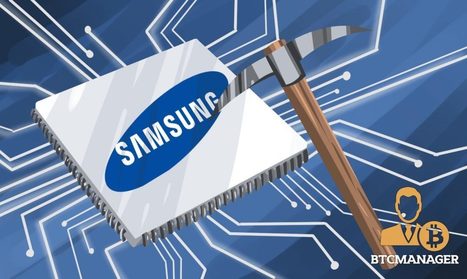



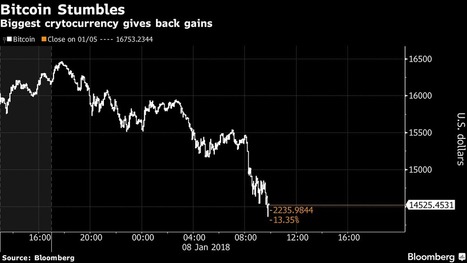

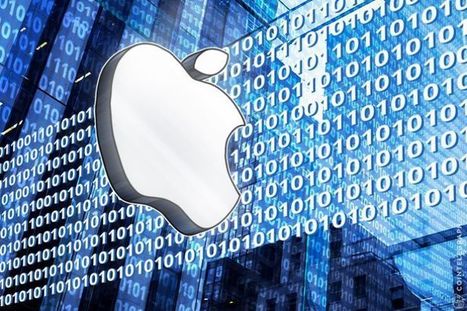
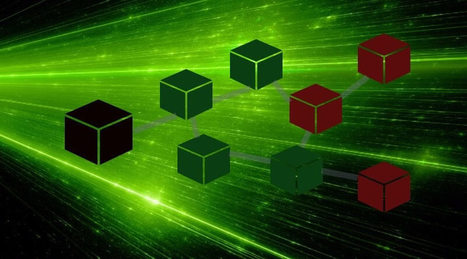
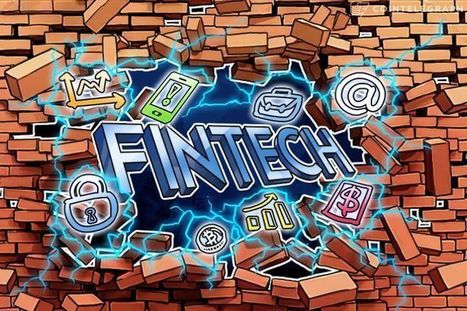




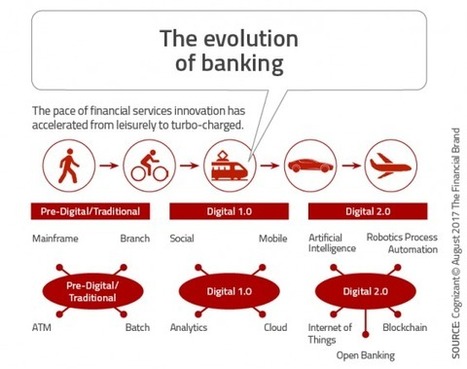
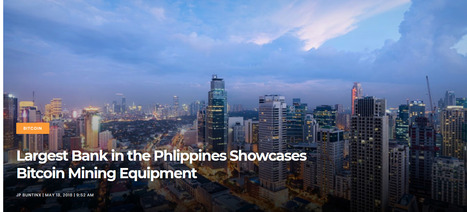


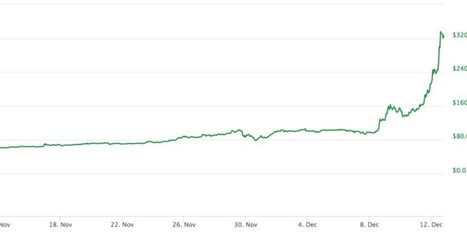

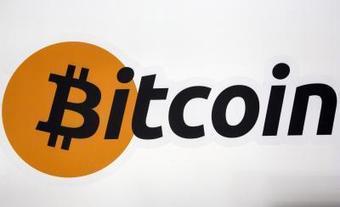





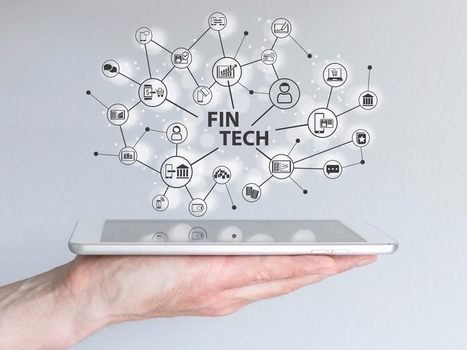






Advanced Micro Devices (AMD) CEO Lisa Su surprised in more ways than one with the release of the company’s Q1 earnings on April 25, 2018. Not only was it a feather in her cap to learn that AMD has surpassed Q1 estimates, Su also revealed that only a small percentage of income was derived from the broad cryptocurrency arena. Su confirmed that data centers and the gaming community were seen as prime areas of commerce for the company going forward. “Gaming is a great market, there are lots and lots of gamers – from casual gamers to real enthusiast gamers – and we’re addressing that entire segment,” Su said.
She added that in the data center market, all players were looking for “more power in the cloud, so they’re really great market segments.” The company’s shares rose 11 percent immediately after the Q1 report was released, and a further one percent the following morning. Samsung Takes Up the Slack as AMD Stays True: While Su felt that the current emergence of blockchain was more of a distraction to AMD than anything else, Korean giant Samsung has reaped its due rewards for recently initiating a dedicated production of the ASIC chips used in cryptocurrency mining. Discussing strategies for moving ahead, Su reiterated the company’s focus areas, saying that “Blockchain is a very important technology. The idea that you can do all these peer-to-peer transactions and a decentralized market, but it’s a bit of a distraction at this point. We want to focus on the core markets,” she said. Samsung meanwhile has reported a 58 percent year-on-year growth in operating income for the first quarter of 2018. The jump in revenue is at least partly attributable to strong demand for its digital coin mining chips.